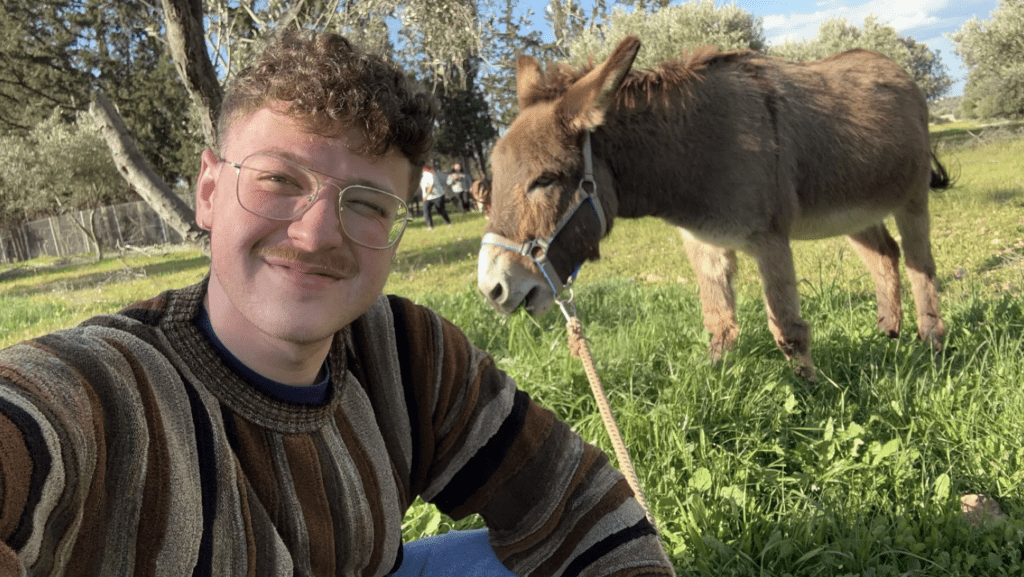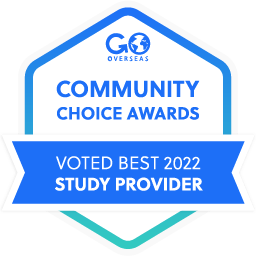| Email: | [email protected] |
| School: | University of Southern California |
| Cya Term: | Spring 2024 |
| Major: | Journalism |
| Anticipated Graduation: | 5/16/2025 |
Spending a semester abroad is beneficial because it helps form your identity as a global citizen and independent person. Personally, I grew in my problem-solving skills, independence, bravery, minimalism, cultural literacy, and open-mindedness. I also made special friendships with CYAers from cities across the USA, Greek people from Athens and various villages and islands, and people from around the world I met in hostels while traveling. Now, I have couches to sleep on in dozens of cities and a true global network! Academically, studying abroad allowed me to really engage in experiential learning, as all five of my courses utilized field trips as part of the curriculum.
What advice do you have for prospective students who are interested in or planning to study abroad with CYA?
My biggest advice is to plan your weekend travels ahead, because hostels and flights will always be cheaper the earlier you book. It can be tempting to wait to come to CYA to book your travels so you have buddies to travel with, but my best travels were definitely the ones I did solo! If you wait until the month of, it might become financially impossible to visit your top bucket-list destinations! Another piece of advice is to pack light because there are amazing thrift stores in Athens and you will inevitably buy clothes and souvenirs that won't fit in your suitcase on your way back to the USA if you overpacked! One last piece of advice is to get a TON of Euro coins before you come to Greece, especially 2-euro coins, because CYA's laundry room only accepts 2-euro coins and nobody ever has any!
How was the political climate in Greece different from what are you used to? If applicable, describe a time when you had to navigate a political conversation during your time abroad.
I live in Los Angeles, where popular opinion is in favor of LGBTQ+ people, as is legislation (generally speaking). In Greece, opinions about LGBTQ+ people are far more mixed, and marriage equality actually first passed in Greece while I was living there this semester. I experienced harassment on the basis of my visible sexual orientation twice while out at night in the Gazi neighborhood (gay neighborhood), which was a jarring experience as I don't ever experience this type of homophobic harassment back in Los Angeles. A lot of (but certainly not all) Greek people are guided by the Greek Orthodox religion when determining their political opinions, and the population is very homogenous compared to what I am used to. These factors made the political climate an unfamiliar one to me, but I appreciated learning about this intensively in my Gender & Sexuality in Modern Greece course with Aimee Placas, a class that touched on several intersectional political and anthropological issues that I strongly recommend anyone concerned about the political climate in Greece should take.
please select any of the following that apply to you, and that you would be willing to share about your CYA experience with other students:
Dietary restrictions, LGBTQIA+ student, Mental health, Religion
Briefly describe a cultural experience you had that was significant to you in any way.
I spent Sarakosti (Clean Monday) with my local Greek friends. We went to the Flisvos Marina and flew kites together and had a really amazing picnic. It was really wholesome and I was happy to get to celebrate the holiday with Greek people! Then, that night, a bunch of friends from CYA and I went to a local Greek restaurant, Το Μαύρο Πρόβατο, for the traditional fish-heavy dinner with no meat! The food was amazing.
Favorite food in Greece?
My favorite food in Greece is definitely grilled or baked octopus! In general, the seafood in Greece is so fresh and tasty, especially on the islands!
Favorite class you took at CYA?
My favorite class I took at CYA was Gender & Sexuality in Modern Greece with Professor Aimee Placas. The readings were really engaging and I learned so much about the politics and anthropology of Greek society. It helped me get my bearings as a queer person in Greece and made me more aware of my surroundings. At the start of every class, Dr. Placas let us ask any questions on our minds about gender, society, or anything on our mind. Dr. Placas seemed to always have the answers for everything, or at least knew where to look. She is a professor who really cares about her students, our adjustment to the city of Athens, and our experiences studying abroad. She's a true gem!
What extracurricular activities were you involved with in Greece?
Volunteering at Hellenic Donkeysland, an animal rehabilitation center for retired and rescued donkeys from the tourism industry, farms, and transportation uses.







